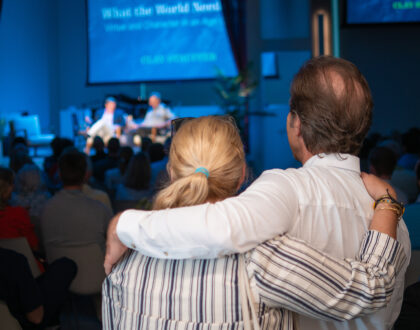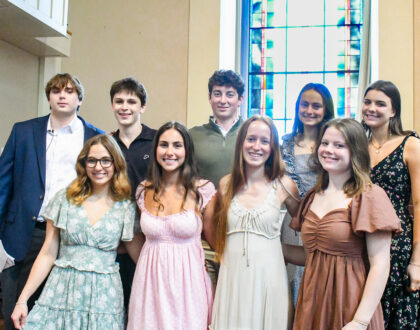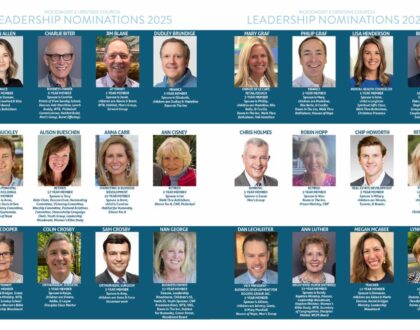Choosing Generosity & Finding Meaning

This Sunday, we will officially launch our spring stewardship campaign. The theme this year is “Choosing Generosity” with I Tim 6:17-19 being our text. I am grateful to Alex and Polly Ryerson for serving as our chairs this year. Commitment Sunday will be the week after Easter (April 24th), the same day we baptize our disciples class. You can turn in your commitment card any time in April. Every spring, we ask our members to make a commitment to support Woodmont for another year (beginning July 1). We then take these commitments and responsibly set our operating budget. This gives us an accurate idea of how much revenue we can anticipate. Every year, our goal is to have a high level of participation. Thank you for making the ministry and mission of Woodmont possible. Thank you for being generous.
On Sunday, I talked about Arthur Brooks’ new book titled “From Strength to Strength.” In it, he focuses on how we can intentionally find meaning and purpose in the second half of our lives. The first half of life seems to be focused on education, career establishment, finding a spouse, starting a family, and earning a living. We work hard, we sacrifice, we combat stress, and ambition often rules the day. But at some point, we all get to a place where we stop and ask the deeper question, “What is it all about? Am I actually enjoying this journey?” These are important questions to ask.
In doing his research for the book, Brooks’ goal was to, “glean the wisdom and experience from people who have seen a lot, have already made every stupid mistake in the book, and can teach the younger folks before they make avoidable errors.” Wise people are able to learn from the experiences and mistakes of others. Professional and physical decline as well as other disappointments are inevitable for all of us, but we can do certain things to intentionally achieve a healthier and happier existence. Many things are out of our control such as where we were born, the social class of our parents, having a happy childhood, our genetic makeup, and avoiding clinical depression. But Brooks identifies seven predictors for healthy living that do remain in our control.
First, he says, don’t smoke. Or at least try to quit early. Second, he says use alcohol in moderation and if it causes you serious problems, then avoid it altogether. Those who have problems when they drink are problem drinkers. Third, maintain a healthy body weight by eating the right kind of food and portions. Fourth, remain physically active with walking being the most obvious choice as we age. Fifth, learn to confront problems directly and honestly without avoiding them. Sixth, become a life-long learner. Never lose your passion for asking questions and stimulating your mind. Seventh, maintain stable, life-long relationships. It’s this final recommendation that seems to have the greatest impact. We find may of these relationships in the church.
After a multi-decade study of Harvard graduates on happiness, psychiatry professor Robert Waldinger makes this conclusion: “the lessons aren’t about wealth or fame or working harder. The clearest message is this: good relationships keep us happier and healthier…period. The people who are the most satisfied in their relationships at age fifty were the healthiest at age eighty.” Broadly speaking, women seem to be much better at cultivating friendships than men. Healthy marriages that last over the long haul are grounded in friendship and mutual respect, avoiding contempt and resentment. Brooks also makes the strong case that many people will turn to religion and spirituality in the second half of life to find deeper meaning. “Faith, religion, spirituality, or perhaps just interest in the transcendent commonly grows in our hearts as we move into middle adulthood.” Oftentimes, in the first half of life, ambitious people are too busy to slow down and reflect. Substantial research clearly indicates that religious and spiritual adults are much happier, are less likely to suffer from depression, and less likely to abuse drugs and alcohol.”
The second half of life seems to offer much more time for reflection and introspection. Many of the things that we once thought were so important no longer feel that way. Ego and ambition give way to meaning and connection. Tending to our soul and our relationships is what really matters. The church exists to help us do just that!
Recommended Posts

Healing, Growth, & Renewal Over Time
May 30, 2025

Values for Our Graduates
May 20, 2025

Leading in the Church
May 16, 2025

